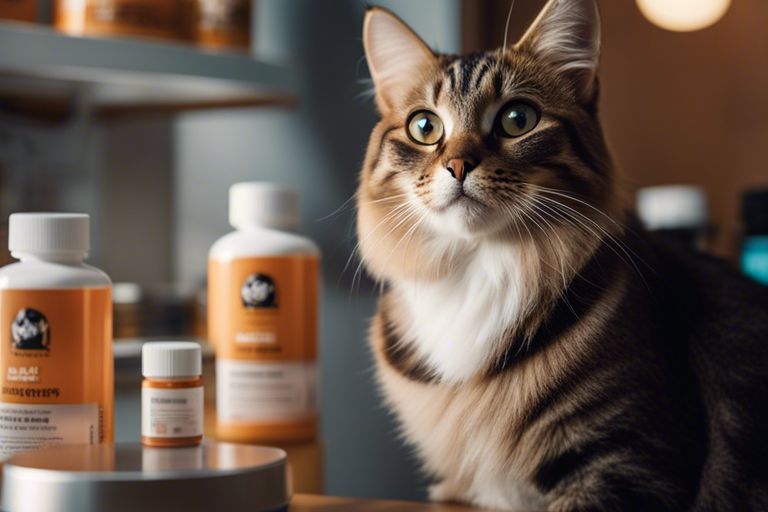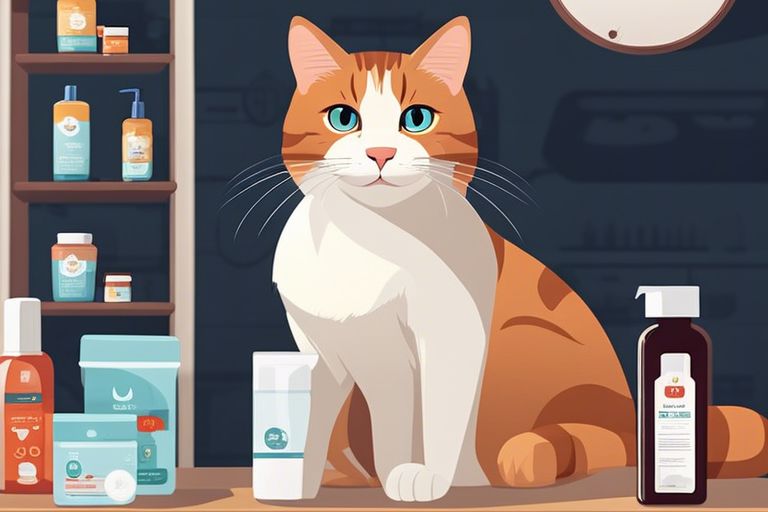Ensuring optimal eye health for your feline friend is crucial for their overall well-being. As a responsible pet owner, it’s important for you to be proactive in maintaining your cat’s ocular health. There are several critical steps you can take to prevent potential eye issues and to keep your cat’s eyes in pristine condition. From regular cleaning to vigilant observation of any abnormalities, here are some key tips for promoting and maintaining your cat’s eye health.
Key Takeaways:
- Regular Vet Check-ups: Schedule regular check-ups with your vet to ensure your cat’s eyes are healthy and to address any potential issues.
- Proper Nutrition: Provide your cat with a balanced diet that includes essential nutrients, such as Vitamin A, to support eye health.
- Keep Eyes Clean: Regularly clean your cat’s eyes with a damp cloth to remove any discharge or debris that could cause irritation or infection.
- Monitor for Changes: Keep an eye out for any changes in your cat’s eye appearance, such as redness, cloudiness, or excessive tearing, and seek prompt veterinary care if you notice these symptoms.
- Avoid Irritants: Keep harmful chemicals, such as cleaning agents and smoke, away from your cat to prevent eye irritation and damage.
Daily Eye Care Routine for Your Cat
Any responsible cat owner knows that regular eye care is essential for maintaining your cat’s overall health. By incorporating a daily eye care routine into your cat’s grooming regimen, you can help prevent potential eye issues and keep your feline friend’s eyes healthy and bright.
Inspection Routine
Each day, take a few minutes to inspect your cat’s eyes for any signs of redness, cloudiness, discharge, or swelling. Monitoring your cat’s eyes daily allows you to catch any potential issues early, which is crucial for maintaining your cat’s eye health. To facilitate the inspection process, make eye contact with your cat and gently lift their eyelids to get a closer look. If you notice any abnormalities or your cat seems to be experiencing discomfort, it’s important to consult a veterinarian immediately.
Cleaning Techniques
In addition to regular inspections, it’s important to keep your cat’s eye area clean. Use a soft, damp cloth to gently wipe away any discharge or debris that may accumulate around the eyes. Be sure to use a different part of the cloth for each eye to avoid spreading any potential infections. If your cat has excessive tearing or discharge, consult your veterinarian for appropriate cleaning techniques and products to use.
Diet and Nutrition for Optimum Eye Health
While it is important to take your cat to the veterinarian regularly for eye check-ups, you can also help maintain their eye health by ensuring they are getting the right nutrients through their diet. To learn more about keeping your kitty’s eyes healthy, you can check out this article on Keep your kitty’s eyes healthy.
Essential Nutrients for Cat Eye Health
Essential nutrients, such as Vitamin A, Taurine, Omega-3 fatty acids, and antioxidants play a vital role in maintaining your cat’s eye health. Vitamin A is necessary for good vision, Taurine is crucial for the functioning of the retina, Omega-3 fatty acids help in reducing inflammation and maintaining the overall health of the eye, and antioxidants help protect the eyes from free radical damage. Make sure your cat’s diet includes these essential nutrients to support their eye health.
Recommended Foods and Supplements
When it comes to ensuring your cat’s diet promotes good eye health, incorporating foods rich in the essential nutrients mentioned earlier is crucial. Look for high-quality cat foods that contain Vitamin A, Taurine, and Omega-3 fatty acids. Additionally, you can consult your veterinarian about the possibility of adding supplements to your cat’s diet to further support their eye health. Always consult your vet before adding any new supplements to your cat’s diet.
Preventive Measures and Regular Check-Ups
Keep your cat’s eyes healthy by taking preventive measures and scheduling regular check-ups with your veterinarian. Preventive measures include vaccinations, parasite control, and regular veterinary visits to ensure your cat’s overall health and well-being.
Understanding Vaccinations and Parasite Control
When it comes to keeping your cat’s eyes healthy, understanding the importance of vaccinations and parasite control is crucial. Vaccinations help protect your cat from serious diseases that can affect their eyes, such as feline herpesvirus and calicivirus. Additionally, regular parasite control, including flea and tick prevention, is essential for preventing eye irritation and infections caused by these pests. By staying up-to-date with vaccinations and parasite control, you can significantly reduce the risk of eye-related health issues in your cat.
The Role of Regular Veterinary Visits
Regular veterinary visits play a critical role in maintaining your cat’s overall health, including their eye health. During these visits, your veterinarian can thoroughly examine your cat’s eyes for any signs of infections, injuries, or underlying health conditions. Early detection of eye issues can prevent them from worsening and causing long-term damage. Furthermore, your veterinarian can provide valuable guidance on proper eye care and recommend any necessary treatments or medications to keep your cat’s eyes healthy.
Recognizing and Addressing Eye Problems
Now that you understand the importance of keeping your cat’s eyes healthy, it’s crucial to recognize and address any potential eye problems that may arise. By knowing what to look for and when to seek veterinary care, you can help ensure that your cat’s eyes stay healthy and free from any serious issues.
Signs of Eye Infections and Ailments
When it comes to your cat’s eye health, it’s important to be able to recognize the signs of potential infections and other ailments. Keep an eye out for symptoms such as excessive tearing, redness, swelling, discharge, squinting, or changes in your cat’s behavior. If you notice any of these signs, it’s essential to take action promptly to prevent any further complications.
When to Seek Veterinary Care
Knowing when to seek veterinary care for your cat’s eye problems is crucial for their overall health. If you notice any persistent or severe symptoms, such as eye discharge, cloudiness, or changes in vision, it’s imperative to schedule an appointment with your veterinarian. Additionally, if your cat is excessively rubbing or pawing at their eyes, it’s a clear sign that they need professional care. Remember, early detection and treatment can make a significant difference in your cat’s eye health.

The Importance of Keeping Your Cat’s Eyes Healthy
The health of your cat’s eyes is crucial to their overall well-being. By regularly cleaning their eyes, monitoring for any changes in appearance, and visiting the vet for regular check-ups, you can help ensure that your feline friend maintains healthy eyes. Additionally, providing a balanced diet, keeping them indoors to reduce the risk of injury or infection, and keeping their litter box clean can also contribute to their eye health. Remember, a proactive approach to maintaining your cat’s eye health can help prevent potential issues and ensure a happy and healthy pet.
FAQ
Q: How can I keep my cat’s eyes healthy?
A: Keeping your cat’s eyes healthy is crucial for their overall well-being. Here are some tips to maintain their eye health:
- Regular grooming: Clean your cat’s eyes with a damp cloth to remove any discharge or debris.
- Annual vet visits: Schedule regular check-ups with your veterinarian to monitor your cat’s eye health.
- Proper nutrition: Feed your cat a balanced diet to support their overall health, including eye health.
- Environmental enrichment: Provide a stimulating environment for your cat to reduce stress and promote overall health, including their eyes.
Q: What are common eye problems in cats?
A: Cats can experience various eye problems, including:
- Conjunctivitis: Inflammation of the conjunctiva, resulting in red, swollen eyes.
- Corneal ulcers: Injuries or infections that cause damage to the cornea, leading to pain and discomfort.
- Cataracts: Clouding of the lens, affecting vision and causing blindness if left untreated.
- Glaucoma: Increased pressure within the eye, leading to vision loss and discomfort.
It is important to seek veterinary attention if you notice any signs of eye problems in your cat.
Q: When should I seek veterinary care for my cat’s eyes?
A: You should seek veterinary care for your cat’s eyes if you notice any of the following symptoms:
- Excessive tearing or discharge
- Redness or swelling of the eyes
- Squinting or blinking excessively
- Cloudiness or changes in the appearance of the eyes
It’s essential to address any eye issues promptly to prevent further complications and ensure the best possible outcome for your cat’s eye health.

Jayley, a devoted cat enthusiast, also writer for other cat blog as well. She aims to dedicated to providing comprehensive information, insights, and advice on everything you’d ever want to know about our whiskered companions.
